Marine’s Chokehold ‘Did Not Cause the Death’ of Michael Jackson Impersonator, Defense Expert Testifies
The medical expert hired by the defense contradicted the New York City medical examiner who testified for the prosecution that the chokehold was the cause of Jordan Neely’s death.

The Michael Jackson impersonator, Jordan Neely, was not killed by the chokehold, a forensic pathologist testified on Thursday in the trial of Daniel Penny, the Marine veteran who put Neely in a chokehold on a New York subway floor last year.
“Did Mr. Penny choke Neely to death?” a defense attorney, Steven Raiser, asked his expert witness on Thursday morning at Manhattan criminal court.
“No,” a forensic pathologist, Dr. Satish Chundru, who is based in Texas, replied.
According to him, the chokehold did not cause the death, and Neely died from the “combined effects of sickle cell crises, restraint and struggle, schizophrenia, and synthetic cannabinoids.” His analysis contradicted the testimony of the New York City medical examiner, Dr. Cynthia Harris, who testified last week and on Monday, and who wrote “compression of neck” on Neely’s death certificate, adding chokehold in parentheses.
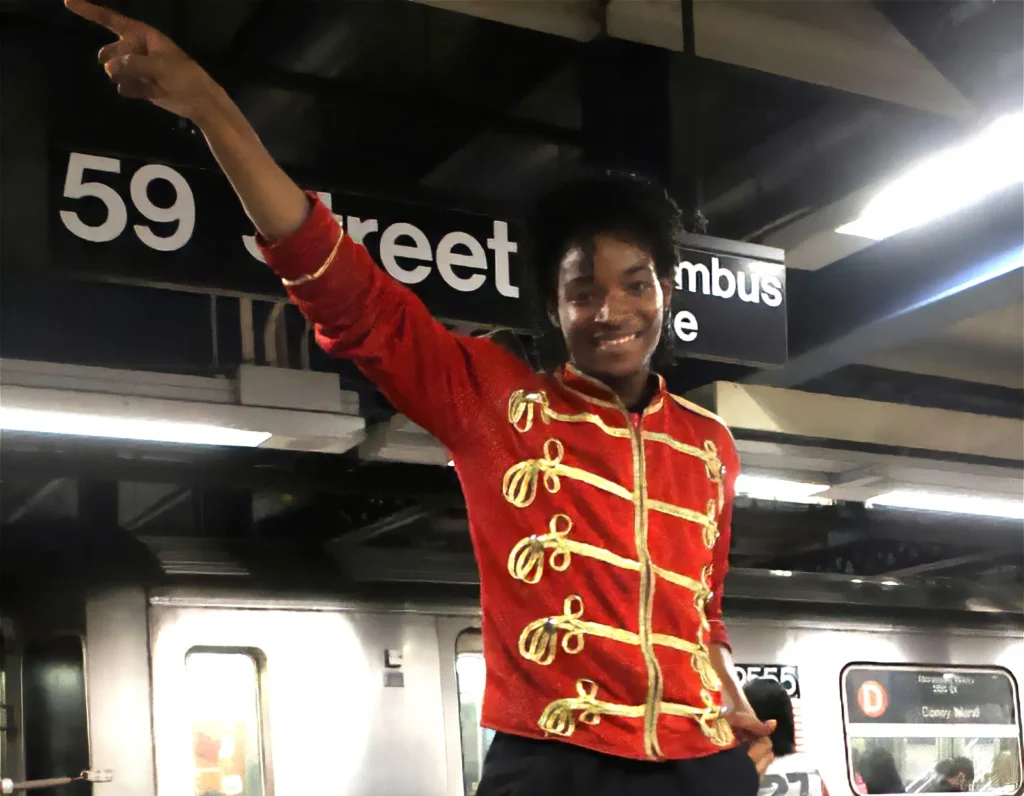
To reach his conclusion, Dr. Chundru said, in what he described as a “very complicated case,” he viewed the victim’s toxicology report, the results from genetic testing and the histology slides (which look at the microscopic structure of tissues and cells). He also read witness statements, Neely’s medical records and he watched the video which a freelance journalist recorded during the incident.
He was “shocked” he testified, when he heard that the medical examiner had ruled asphyxia to be the cause of death before she had received the toxicology report. Dr. Harris had testified that the video and the autopsy findings were enough to convince her, and that nothing could change her opinion, even if Neely had enough fentanyl in his body “to put down an elephant.”
It appears that Dr. Chundru spent about 150 hours combing through the evidence. The cross-examination by an assistant district attorney, Dafna Yoran, who is prosecuting the case on behalf of Manhattan District Attorney Alvin Bragg, disclosed that Mr. Chundru charges about $600 per hour and has made around $90,000 from Mr. Penny’s case.
Mr. Penny can afford such high-profile experts thanks to an online campaign, Daniel Penny’s Legal Defense Fund, which has raised over three million dollars to cover his legal fees via GiveSendGo, a faith-based crowdfunding platform that offers campaigns that GoFundMe won’t support an alternative.
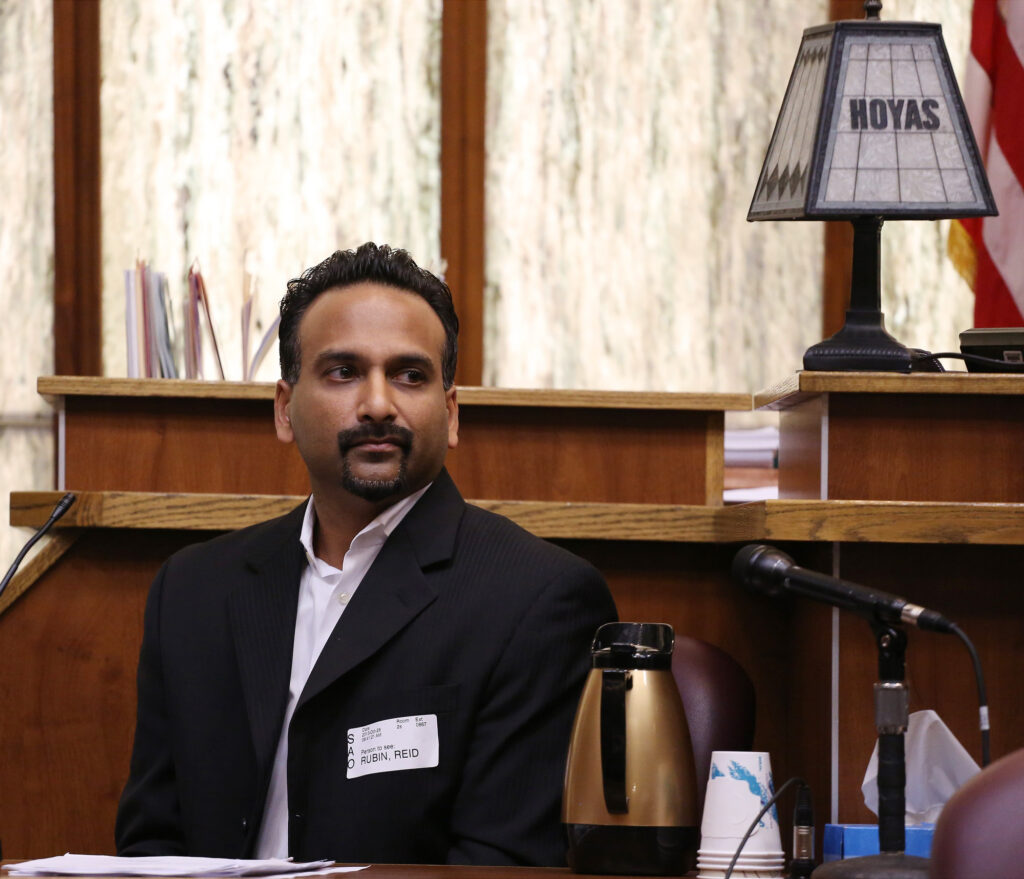
Mr. Penny, 26, is charged with second-degree manslaughter and negligent homicide in the death of Neely, and if convicted, faces a maximum of 19 years in prison. He has pleaded not guilty, and said he never meant to “kill the guy” as he told police officers. Instead, he said, he was trying to protect other subway riders from Neely, whom he considered to be a serious threat.
Neely, a street performer known for his Michael Jackson impersonations on subways and platforms and even in Times Square, was thirty years old and homeless when he died. On May 1, 2023, he boarded a subway car, tossed his jacket on the ground and shouted that he was thirsty, hungry, ready to go to prison and ready to die. Several eyewitnesses described the tone of his voice as extremely menacing and far more terrifying than other deranged homeless people they had encountered in the New York underground. One witness testified that Neely made her fear for her life.
Shortly after Neely began yelling, Penny, who was in the same subway car, grabbed Neely from behind, placed him in a chokehold and took him down to the ground. He held the chokehold around Neely’s neck for almost six minutes, prosecutors allege, even after the subway had stopped at the next station and opened its doors. Mr. Penny also wrapped his legs around Neely’s legs to secure the hold. Two other men helped restrain Neely. When officers arrived at the scene Neely was unresponsive. He was pronounced dead at the hospital about an hour later.
A summary of Neely’s medical records shows Neely suffered from schizophrenia, according to a forensic psychiatrist Alexander Sasha Bardey, who performed the review for the defense. Dr. Bardey testified he believed Neely was experiencing a schizophrenic episode when he got on the train on that tragic day.
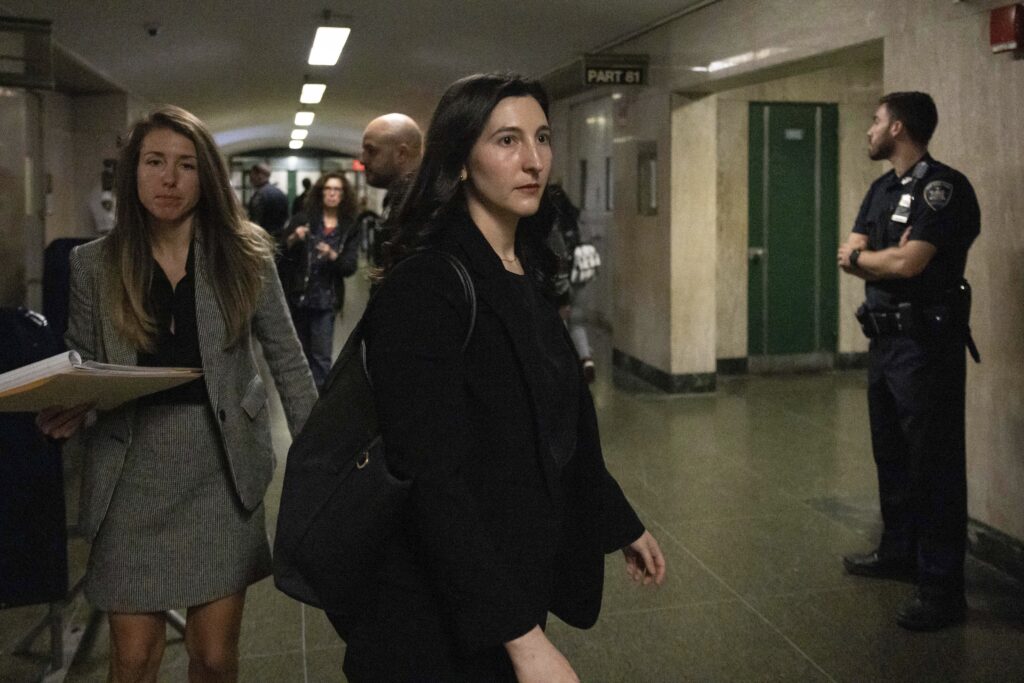
On Thursday, Dr. Chundru suggested Neely’s schizophrenic episode may have sent his vitals into a tailspin and been one of several factors that led to his death.
“In these types of cases,” he told Ms. Yoran, “there is typically more than one thing going on.”
The toxicology report showed that Neely had the synthetic marijuana, K2, also known as spice, in his system at the time of his death. Furthermore, Neely carried the sickle cell trait, a genetic blood disorder that predominantly affects people of color (though in rare cases, it can also affect white people). At the time of his death, the medical examiner testified, Neely experienced a “sickling crisis.” Red blood cells morph into a sickle-shape, clump together and block the blood flow in the smaller blood vessels.
“He had extensive sickling from the brain tissue all the way to the kidney and everything in between,” Dr. Chundru said. “And if the cells are not getting oxygen and nutrients those cells are gonna die.”
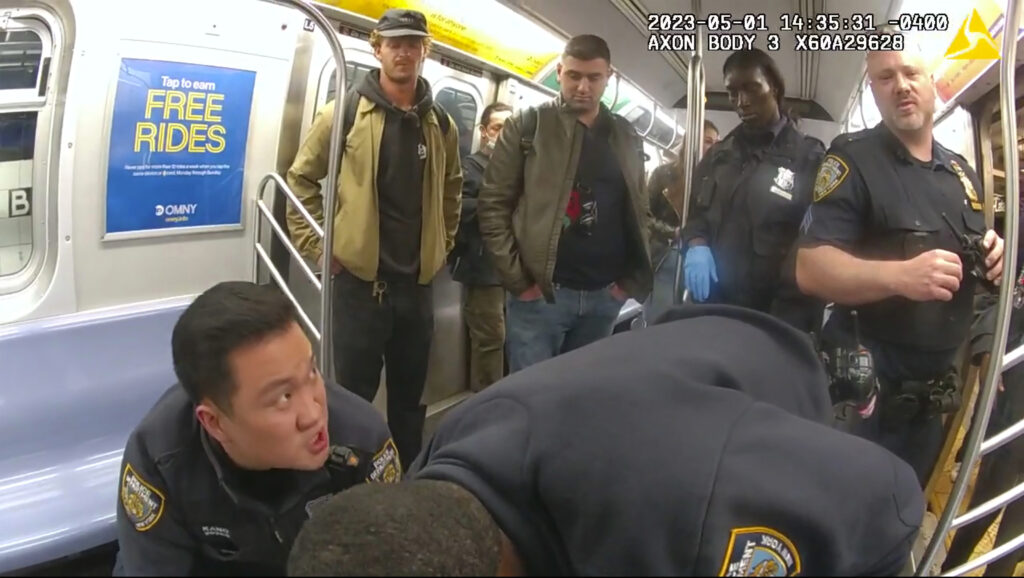
During the fiery cross-examination by the prosecution, the expert explained he believed when he stepped onto the subway car, Neely was suffering from an schizophrenic episode, while he was under the influence of K2, which was speeding up his heart rate. The exertion from the struggle with Mr. Penny, who had him in the chokehold from which he was trying to free himself, triggered the sickling crisis, and all these factors combined ultimately killed him. The expert could not pin Neely’s death to a single cause.
He was, however, certain that the chokehold did not kill Neely. A fatal chokehold, he testified, has “two phases.” Phase one is unconsciousness. The choker needs to exert enough pressure “to render a person unconscious.” Then the choker must apply “continued constraint and sufficient pressure to the point of death. ” That pressure must be held for an “extended period of time.” But the unconsciousness is key, he said, “if you don’t render them unconscious, you cannot have death… You have to go through both phases.”
The video recorded on the train shows that Neely is unconscious. But Dr. Chundru said that Mr. Penny did not apply pressure for long enough to cause the actual death. If he had, Neely would have suffered from more severe petechiae in his eyes, tiny patches of bleeding. And the hemorrhages in his neck would have also been more extreme.
“There are not many petechiae eye at all… There are a total of four that we found in the photos… This is the least number of petechiae eye I have seen in a strangulation case,” Dr. Chundru, who worked as a medical examiner in Florida and Texas, testified.
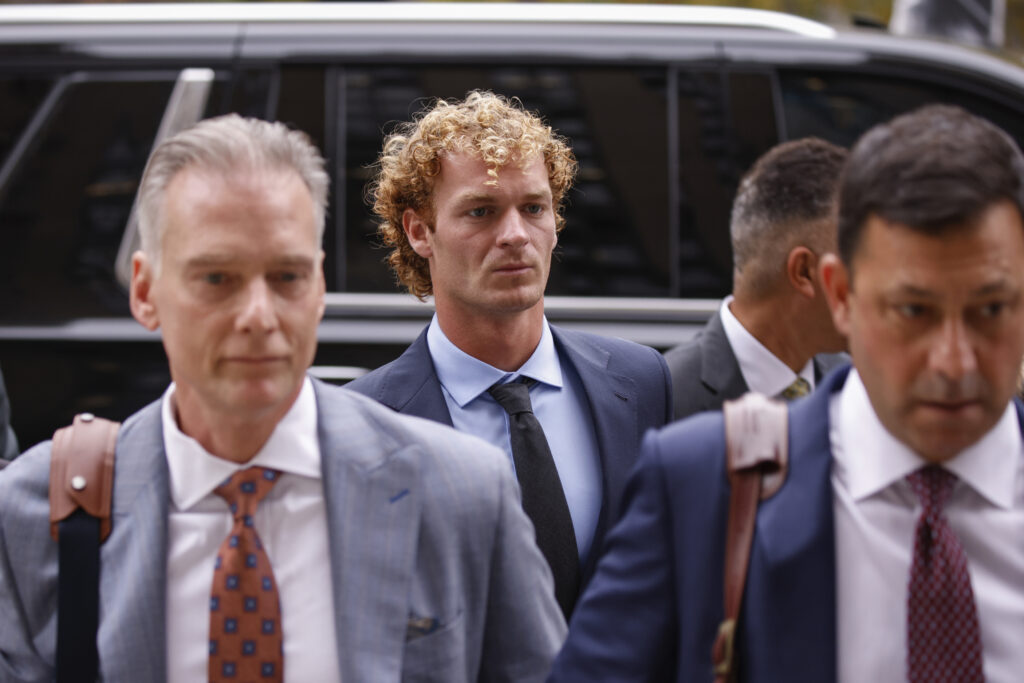
When Ms. Yoran asked him if a medical examiner’s office provides “quality assurance,” he answered, “if it did, it didn’t have it in this case.”
Dr. Harris, the city medical examiner, who performed the autopsy on Neely, was sitting in the courtroom, listening to the expert criticize her findings, taking notes and giving the prosecution pointers during the breaks as if she was a member of their team.
Meanwhile, Dr. Chundru admitted in the cross-examination that he had read a live transcript of Dr. Harris’s testimony and spoken to the defense lawyers to advise them on her cross-examination.
Ms. Yoran, the prosecutor, pressed Dr. Chundru about the color differential that Ms. Harris had mentioned in her testimony, saying that Neely’s face was much darker than his arms while he was struggling, which proved that blood was trapped in his head because of the choke.
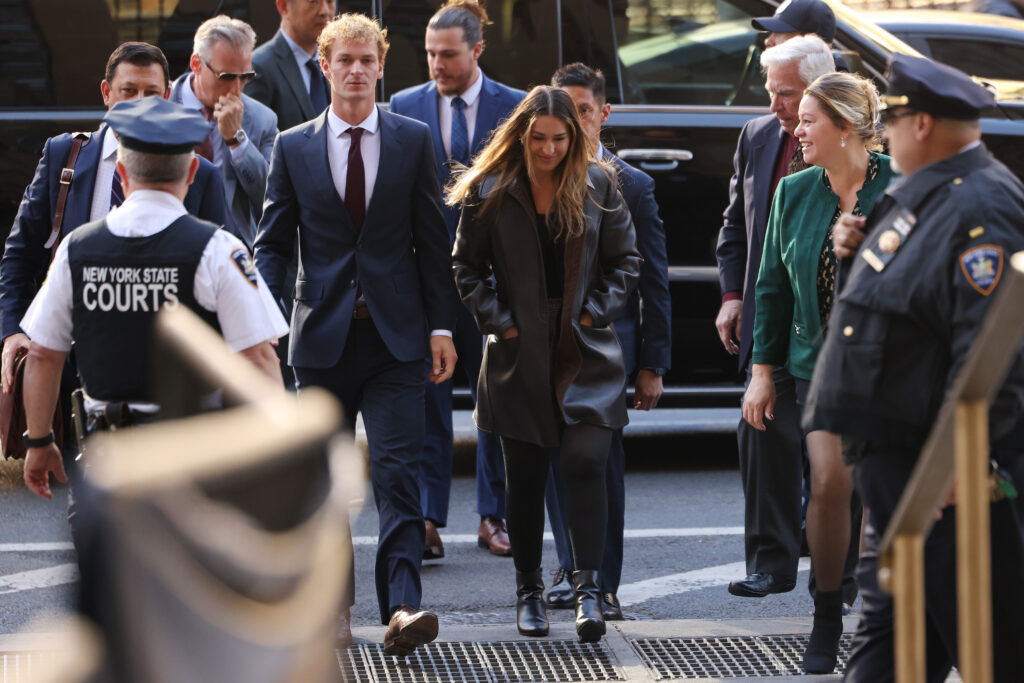
“One suggestion is that he has a blockage and the other is he has a suntan,” Dr. Chundru replied. And when Ms. Yoran presented pictures from the autopsy that showed the same skin color on Neely’s face as on his arms, the expert said, he couldn’t comment because the images were taken by “two different cameras” and in “two different situations.”
The prosecution will resume its cross-examination on Friday. It’s unclear if the defense will rest its case before the weekend, and if Mr. Penny will decide to testify.

